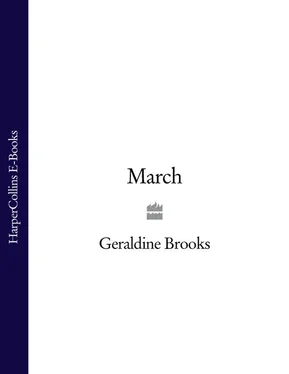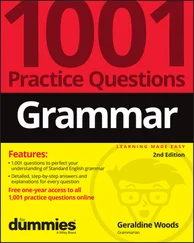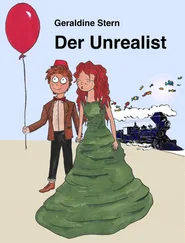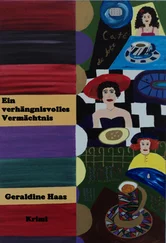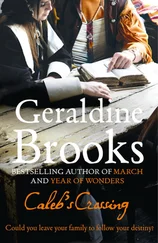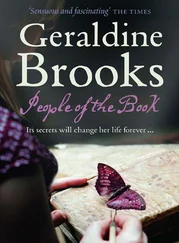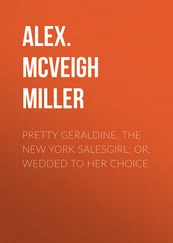1 ...8 9 10 12 13 14 ...17 After my eviction from the Clement estate, I went on peddling, though I ceased averting my eyes. From my youth, I have been unorthodox in my faith. I could never reconcile the Calvinists’ stern preachments that we are all of us, even radiant babes, sin-saturated. Nor could I bring myself to believe in a deity whose finger touched every man’s slightest doing. To me, the divine is that immanence which is apparent in the great glories of Nature and in the small kindnesses of the human heart. And yet, for a few moments, in a little church on the outskirts of Petersburg, I did feel as if a Power revealed itself to me and made known how I was meant to go on.
I had noted a Bible study under way and, with no pressing business, on a whim decided to join it. Why I did so I will never rightly know, as I had long since given up an expectation of gaining any spiritual sustenance in churches, finding within only stale and pompous ritual in the North, and primitive superstition in the South. Nevertheless, I entered the small clapboard building, unremarkable, except that it happened to be set down in that part of the square adjacent to a courtyard where slaves, from time to time, were put up for auction. It happened that just such a sale commenced in the course of the Bible study hour.
So as, with one ear, we heard the good tidings of great joy that shall be to all people, with the other we heard the resonant voice of the auctioneer cry out: “Bring up the niggers!” As we contemplated the teachings to be drawn from the greatest life ever lived, the voice without was crying up the lot in hand: two children without the mother, who had been kidnapped therefrom. My thoughts flew to the verse “suffer the little children to come unto me,” and had I then the means, I would have marched out and bought those children their freedom. What was most striking to me was that no one else in the church seemed to mark what was going on without, and when the pastor asked for subscriptions to aid in sending the scriptures into Africa, I could bear this no longer, but stood in my place and asked how it was that the Good News could not be sent more cheaply to the beings on the auction block next door? This was greeted with hisses and tuttings and a cold request that I leave, which I did, speedily and without regret.
Outside, the two children had already been sold, and bidding was vigorous for a fit-looking man of about thirty. The auctioneer cried out that the man was a free black, now put up for sale for nonpayment of his city taxes. The man was weeping and I did not wonder at it. How intolerable to have once earned freedom and then to have it snatched away.
The next lot was a youth whom I judged to be about fourteen years of age with straight brown hair whose skin was as white as any in the crowd of buyers. A few of the men called out coarse jests alluding to the youth’s parentage, and the boy’s freckled face flushed. The bidding was desultory, and when the auctioneer, citing the youth’s soundness, exhorted the crowd to higher offers, a cry came forth that he “wouldn’t have those goods as a gift.” A man standing by me shook his head, and when our eyes met, I thought that I had a companion in my anguish at the scene. “It’s wrong,” he said.
“Shockingly so,” I assented.
“White niggers are more trouble than they’re worth.”
The boy was knocked down for $250, and as he was handed off, I saw a very young woman penned among the unsold lots, reaching out her arms in the boy’s direction, crying out farewells to the son she would likely never see again. I left the place, being able to stand no more. I could not help but wonder how the scene might have gone if the pastor had led his people of faith out from that little church to stand in that square with their Bibles raised in protest. From that day, I was convinced that the pulpit was the place from which to decry this barbarous system. But how I was to find my way there was, at that time, unclear to me.
And so I went on, tramping in summer, the roads dusty and the weather sultry, and likewise through winter, the snowfalls knee-deep and the ways icy. At times, searching for new markets, I pushed through trackless wastes such as the Dismal Swamp. It was there that I lost myself, at night, in the midst of a tempest so terrifying that I believed I was meant to die, running, in the illumination of the lightning flashes, amid falling branches and drenching torrents. But I lived, and at 33 percent on each small sale, my profits accumulated, until I had enough put by for a horse and trap, and could expand both my inventory and my territory. By the second year, as my receipts increased, I took on Connecticut lads just off the sloops to work for me on commission, and when I sold out the concern to the brightest and most industrious among them, it was for a tidy little sum.
I traveled home through the city of New York, where I stopped on the Broadway to bespeak the suit of clothes I had promised myself, and returned to Spindle Hill in triumph and a vest of Marseilles. I bought my parents their new house, then chanced a like sum on a silver speculation that paid out handsomely enough to afford me an interest in a half dozen factories on the Naugatuck. Poverty, they say, is the philosopher’s ornament and the worldling’s plague. Yet, though I like to think of myself as a philosopher, this did not deter me from gathering most gratefully what came honestly into my hands. In short, by my early twenties I found myself rich: enough to afford a set of tasteful rooms within easy walking distance of the great libraries of Boston. There I commenced to apply myself to study, reflection, and, by stages, to the quill driving and lecturing that brought me a small measure of notice among those whose good opinion I most valued. Through the intercession of one of them, the estimable Unitarian Reverend Daniel Day, I was approbated to give sermons, and became a preacher of no fixed pulpit. It is to Reverend Day, also, that I am indebted for the introduction to that remarkable person, his sister, who is now my wife.
As I lie in the dark, thinking over the words l have just written to her, I recall that I have said I will not be sorry to leave here. Contemplating those words, I realize that they are not altogether true. I will be sorry indeed on one account: that is, to leave Grace, for this a second time, in bondage. Although this time, the choice to stay is hers.
I had stood for a very long time, that night after the battle of the bluff, trying to gather the strength to once again enter this house. I cannot say how long it was that I stood with my head pressed against the chipped white pillar. Despite the chill, sweat formed scalding rivulets down my back. I could hear the cries of the wounded men coming from inside, and knew I should be with them. For their pain was real, and present, and mine was just an old memory from a past that no one could change.
I straightened, finally, took a last deep breath of outside air, and laid my hand against the great door. There were bits of board nailed up where the beveled lights had been. I supposed they had been shot out or shattered in the battle for possession of the island. Inside, in what had been the elegant oval reception hall, men huddled, wounded and wet. Some lay flat upon the floor, some half-propped against the walls. One man’s head was pillowed on the plinth that held the Bound Prometheus, and his face had the same wracked expression as the carved countenance above him.
No one, it seemed, had got across the river with a full kit. Some had pants, but were missing shirts; others were attired the opposite way, having lost the lower half of their costume, but retained a coat. Some were entirely nude. Of these, a few shared Turkey rugs pulled up to cover them. Others, without such comfort, shivered so hard that it seemed likely they would shake the house off its foundations. I gave my own black frock to one of these wretches.
Читать дальше
